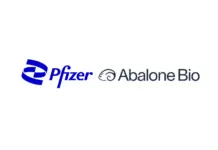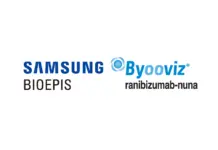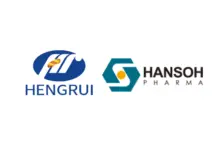First data from post-marketing surveillance was consistent with the safety profile of OFEV® from the clinical studies supporting its FDA approval
In two separate post-hoc analyses of an open-label extension of the Phase III trials, in one analysis of OFEV® treated patients, a similar decline in lung function was observed regardless of the person’s level of disease severity at the start of the study while another study suggests that OFEV® was effective over approximately two years
Post-hoc analysis of the Phase III trials suggests that OFEV® had a similar effect even if people reduced or held doses to manage side effects
Ingelheim, Germany, 13 November 2015 – Boehringer Ingelheim today announced the presentation of new analyses of OFEV® for the treatment of idiopathic pulmonary fibrosis (IPF) at the Pulmonary
Fibrosis Foundation’s PFF Summit 2015 in Washington, D.C. In 2014, OFEV® became one of the first FDA-approved drug treatments for IPF, a rare and serious lung disease that causes permanent scarring of the lungs.
In a post-marketing surveillance study in the United States, treatment with OFEV® in the real-world clinical setting showed a safety profile consistent with that observed in clinical trials supporting its approval by the FDA.
Imre Noth, M.D., Professor of Medicine and Director of the Interstitial Lung Disease Programme at The University of Chicago
“The approval of OFEV® was supported by evidence from three well-designed studies part of a comprehensive clinical trial programme and it is key to continually analyse the real-world experiences of people on therapy given the limited data on IPF,” said Imre Noth, M.D., Professor of Medicine and Director of the Interstitial Lung Disease Programme at The University of Chicago, and lead author of the analysis.
“These first results from the post-marketing surveillance study, which showed a consistent safety profile of OFEV® as described in the prescribing information, are important because they provide healthcare providers with additional information when considering OFEV® for their patients with IPF.”
First data from U.S. surveillance study
Post-marketing surveillance of the safety and tolerability of OFEV® in the United States has been collected in the Boehringer Ingelheim drug safety and reporting database since OFEV® was first approved on October 15, 2014. Until May 31, 2015, 3,838 people were treated with OFEV® for a length of time ranging from 14 to 265 days (on average 88 days).
The most frequently reported side effects were gastrointestinal in nature and included diarrhea, nausea, vomiting and decreased appetite. Diarrhea was the most frequently reported individual side effect, occurring at a similar frequency to that observed in the clinical trials supporting approval.1 No new safety concerns were identified.
Researchers also presented two post-hoc analyses from an open-label, extension of the one-year Phase III INPULSIS®studies, known as INPULSIS®ON. People with IPF who completed the 52-week treatment period and a four-week follow-up period in the identically-designed INPULSIS® trials were invited to receive open-label treatment with OFEV® to assess its long-term safety and tolerability. INPULSIS®-ON included 734 participants (more than 90 percent of those completing the INPULSIS® trials), including 304 people who initiated OFEV® after receiving placebo in the Phase III trials and 430 people who were on OFEV® in the INPULSIS® trials and continued to receive treatment.
New results in people with IPF with severe lung impairment (NCT01619085)
The first analysis evaluated treatment effect in people with IPF who had severe lung impairment (less than 50 percent forced vital capacity [FVC] predicted). The Phase III INPULSIS® studies excluded people with severe lung impairment; however, they were allowed to enter the extension study even if their lung function declined to severe levels during the initial one-year treatment period.3 The new analysis reports that, in patients treated with OFEV®, a similar decline in lung function was observed in people with severe lung impairment when compared to people with mild to moderate impairment (greater than or equal to 50 percent predicted).
Danny McBryan, M.D., vice president, Clinical Development and Medical Affairs, Respiratory, Boehringer Ingelheim Pharmaceuticals, Inc
New long-term efficacy data in people with IPF (NCT01619085)
The second analysis suggests OFEV® had a long-term effect on slowing FVC decline, a measure of disease progression, for approximately two years, or 100 weeks.
Overall, the most common adverse events were diarrhea, nausea, cough, common cold (nasopharyngitis), bronchitis, difficult or labored breathing (dyspnea), IPF disease progression, decreased appetite, weight decreased and vomiting. The most frequent serious adverse event reported was IPF, which includes disease worsening and acute exacerbations.
“At Boehringer Ingelheim, we are committed to improving the understanding of IPF and the role that OFEV® plays in the treatment of this disease,” said Danny McBryan, M.D., vice president, Clinical Development and Medical Affairs, Respiratory, Boehringer Ingelheim Pharmaceuticals, Inc. “Collectively, these analyses support the suggestion that OFEV® continues to be effective out to approximately two years and that the decline in lung function is similar in people receiving OFEV® with severe or mild to moderate impairment of lung function. These results add to our understanding of OFEV® by providing insight into the impact over a longer period of time and in patients that were not included in the studies supporting its approval.”
Effect of dose reductions, treatment interruptions and dose intensity on the effect of OFEV® (NCT01335464 and NCT01335477)
A fourth abstract was a post-hoc analysis of combined data from the Phase III INPULSIS® trials among people who had to reduce OFEV® dosing from 150 mg twice daily to 100 mg twice daily or interrupt treatment to manage side effects, and patients who did not have their dose modified.
The analysis showed that dose reductions or interruptions did not affect the efficacy of treatment in people with IPF.4 Specifically, OFEV® had a similar effect on FVC decline (a measure of disease progression) irrespective of having greater than or equal to one dose reduction/interruption and less than or equal to 90 percent dose intensity. Overall, the average changes in lung function (as measured by a change in FVC from baseline to 52 weeks) were similar whether or not people had at least one dose reduction/interruption (-87.5 mL and -89.6 mL, respectively), or a reduction in dose intensity (-72.0 mL for less than or equal to 90 percent and -94.2 mL for greater than 90 percent).



























